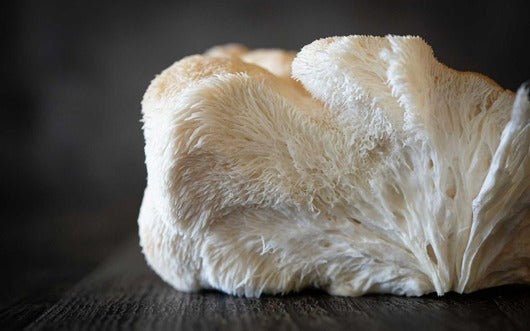Lions Mane mushrooms are a natural fungi that has been used for centuries to help with dementia.
Some research suggests it may be an effective treatment, while other studies are still inconclusive.
The jury is still out, but there’s good reason to give Lion’s Mane a shot.
There are many benefits to taking these mushrooms, including improving memory and overall cognitive function. It can be particularly helpful for people with Alzheimer’s disease, which can be a devastating condition.
Read on this masterpiece to learn whether lion’s mane mushrooms can help with dementia.
Does Lion's Mane Help with Dementia?
Yes, according to some studies, lion’s Mane can be helpful in improving mood and cognitive function. It has also been shown to improve memory and learning ability. However, more research is needed in order to determine whether or not Lion’s Mane has actual antipsychotic properties.
What is Dementia?
Dementia is a condition that can be caused by many things, but some of the most common causes are age, illness, and injury. It’s important to get accurate information about dementia so you can make the best decisions for your health and well-being.
There are a few things to keep in mind when it comes to dementia:
- This condition is characterized by impaired ability to think or make decisions.
- Dementia is a progressive disease that can progress over time.
- Dementia affects different parts of the brain differently, so it’s important to have an accurate understanding of which medications will work best for each person.
- Dementia can be treated with medication, exercise, and support groups.
Types of Dementia
The following are the main types of dementia:
- Lewy body dementia
- Vascular dementia
- Alzheimer’s disease
- Frontotemporal dementia
- Mixed dementia
What are Some Benefits of Taking Lion’s Mane Mushrooms?
Some potential benefits of taking lion’s Mane include improving cognitive function and memory; reducing anxiety and stress; improving sleep quality; reducing inflammation; and helping improve mood or mental clarity.
In addition, taming depression may be improved as Lion’s Mane has anti-inflammatory properties.
While there isn’t yet definitive proof that lion’s Mane has any specific medical benefits for people with dementia, there is enough evidence to suggest that it could help improve their overall health.
Risks Associated With Taking Lion’s Mane
Lion’s Mane is a mushroom that is reported to help with dementia. However, there are some risks associated with taking this herb for the treatment of dementia.
Some potential side effects of taking lion’s Mane for the treatment of dementia include:
- Dizziness and lightheadedness
- Nausea and vomiting
- Confusion and changes in mood
- Apathy and loss of interest in activities
- Rapid cognitive decline
- Changes in body composition
- Atrophy of the brain
- Decreased production of brain cells
- Death in people taking lion’s Mane for the treatment of dementia
If you experience any of these symptoms after taking lion’s Mane, please stop taking the medication and seek professional help immediately!
Tips for Safe and Effective Use of Lion’s Mane for the Treatment of Dementia.
The best way to take lion’s Mane for the treatment of dementia is by mouth. You can take it orally or through rectal administration.
It is advised that you should start taking it at night so that it would have less impact on other medications you might be taking during the daytime hours. Additionally, it is important to follow a strict schedule when taking lion’s Mane for the treatment of dementia as different times of day are better for different types of dementia.
For example, people with Alzheimer’s Disease should start taking it at least two hours before their normal sleep schedule so that they would have an equal amount of medication throughout the night.
How Can You Tell If You Are Suffering from Dementia.
There are a few ways to tell if someone is suffering from dementia: by physical symptoms such as forgetfulness, poor vision, changes in muscle tone or movement, or changes in personality or behavior; by mental symptoms such as delusions, hallucinations, or poor concentration; or by social symptoms such as being isolated from family and friends.
In order to best treat dementia, it is important to have a regular doctor’s appointment and to adhere to the same dosage schedule that the doctor prescribed. Additionally, it is important to speak with a loved one or friend about the medications you are taking, as not everyone will be comfortable with them.
Summing Up
Lion’s Mane may help with dementia. There are some benefits to taking this herb for the treatment of dementia, and there are also some risks associated with its use. By following these tips, you can safely take lion’s Mane for the treatment of dementia.
These mushrooms are among the best adaptogenic mushrooms to consume for brain health



















